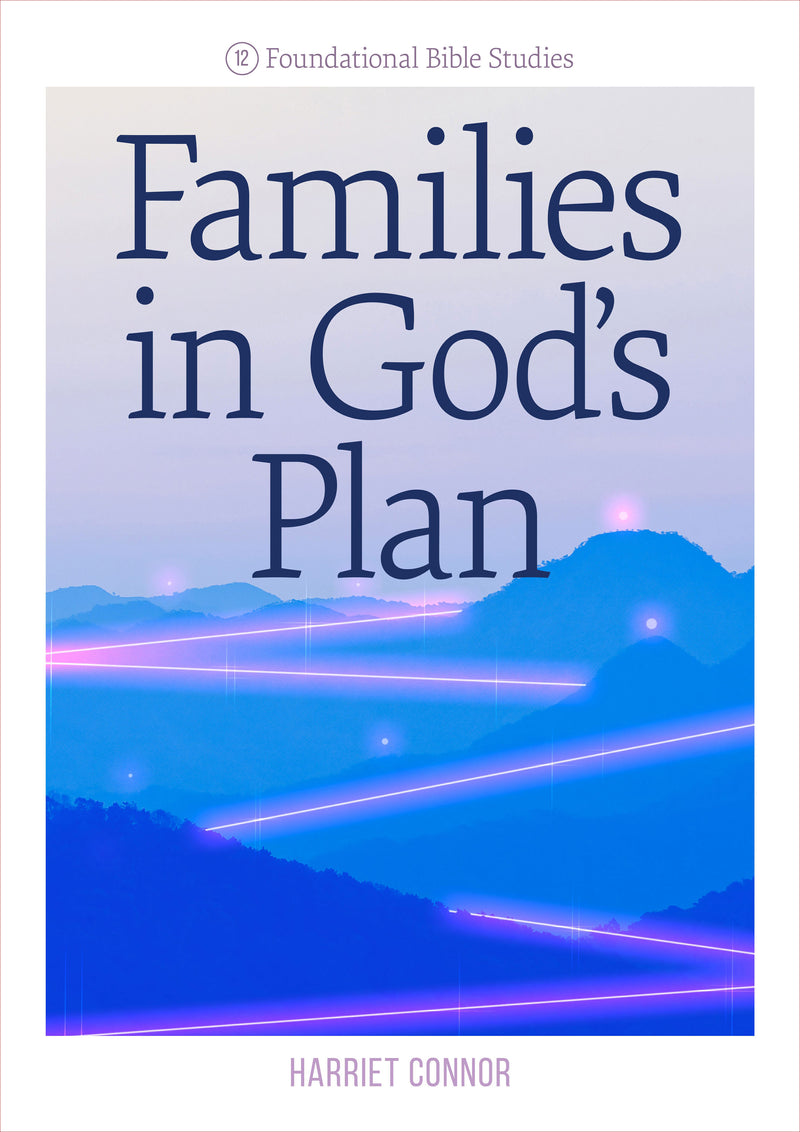
The problem with nuclear families
Christian families need to think bigger.
What do you think of when you hear the word ‘family’? If someone asked you, ‘Do you have a family?’, how would you answer?
In our modern Christian culture, we tend to assume that ‘family’ means the nuclear family: mum, dad and their young children, living together. Often this vision of family is presented as the ‘Christian’ or ‘biblical’ family.
Recently, I heard Rev Dr Danielle Treweek explain that this ‘nuclear’ vision of family is actually a modern invention. She quoted this description:
‘In today’s world, the phrase nuclear family conjures up an image of a domestic unit comprising two parents and their children who live together in a single-family residence and who share a deep affective intimacy with one another … Under these conditions, the modern nuclear family is an institution that is characterized above all by privacy.’1
But this is very different to how families looked and worked in Bible times and throughout most of human history. Dani Treweek explained that the phrase ‘nuclear family’ was never meant to refer to something private or separate from the rest of society. It is only the nucleus that sits within a broader network of social relationships—the whole atom! Slowly, we have taken the nucleus out of the atom.

However, when we expect small family units to be private and self-sufficient, it actually weakens both families and the wider society. The modern nuclear model of family isn’t actually working very well. Here’s why:
Families need an ‘atom’
There is no word for nuclear family in the Bible. In ancient Israel, people lived in extended family groups of about 50–100 people in a cluster of houses around their common living ancestor or ‘father’. This intergenerational family (plus their servants and any ‘sojourners’) would be engaged in a common economic pursuit, such as farming. In the early church, most people also lived in large, intergenerational households headed by a ‘paterfamilias’ and including his family plus any servants or slaves.
In these larger family groups, people generally enjoyed a lot more support and cooperation than they do in modern nuclear families. When we expect a husband, wife and their children to meet all of one another’s needs without any outside help, it puts nuclear families under a great deal of pressure. Nuclear families need an atom!
If we can find ways of connecting our nuclear family into a broader network of relationships—in our extended families, neighbourhoods and churches—we will benefit from:
- having more adults around to care for and teach children
- mutual help being offered between older and younger generations
- wisdom shared by older generations
- supportive friendships with other adults apart from our spouse
- welcoming singles into our network of relationships.
Families need a mission
Today we think of nuclear families as refuges from the world of work: home is where we go for relaxation and recreation at the end of the day. But in almost every human society across history, homes were productive places. Husbands, wives and their children (and other relatives) worked together in a farm or family business; they grew and made the things they needed for life; the home was also where children were educated and the elderly were cared for. In the early church, households were also mission bases—places of evangelism, worship, charity and hospitality.
We usually think of ‘family time’ as leisure time. But the fact is that families grow even stronger by working on something together in the real world. As Alastair Roberts observes, ‘The family is something that is strengthened through pressure … When there is little weight placed upon it and it is just a matter of private affiliation, it becomes a lot easier to break down’.
We can strengthen our families by doing something productive together, like:
- growing something in the garden
- making something useful by hand
- cooking a meal
- doing housework: wash the car, weed the garden
- inviting someone over and showing hospitality
- visiting an elderly relative or neighbour
- serving at church (put your whole family on a roster).
Families need to welcome others
The larger family groupings of previous generations enfolded those who were unmarried, widowed, orphaned or poverty-stricken into a wider social and economic network. The extended family took responsibility to provide support and meaningful work for any of its members (or resident ‘sojourners’) who were in need. By contrast, when we ‘close ranks’ into self-sufficient nuclear families, it can leave singles, the elderly and other isolated people out in the cold.
However, the gospel of Jesus compels Christian families to look beyond themselves—to welcome others in, showing and telling them of the love of God. In the words of Rodney Clapp, author of Families at the Crossroads:
‘The necessity of hospitality converts our homes from insulated havens into adventurous mission bases. Hospitality gives families a purpose beyond themselves. They exist to serve God and the world through the church’.2
Nuclear families belong to the household of God
As Christians, we have the privilege of already belonging to an ‘atom’—a broader network of relationships where we can find and offer intergenerational support, engage in mission and welcome others. It’s called the Church, the household of God. Simply by being committed and active members of our local church and bringing our children along for the ride will help us to work against the pitfalls of modern nuclear families.
As Rodney Clapp concludes:
‘What will make family exciting, what will make it worthy of our commitment and take us through the dry times, is common commitment to a mission bigger than our family. Christian families commit themselves to the church; the church commits itself to the kingdom. When affection wanes, spouses are still committed to witnessing to God’s fidelity, to rearing children who can serve the world in Christ, to providing a place hurt people can come for healing.’3
A Christian family is not a nuclear family—private, self-sufficient and bound together by mere affection. No, a Christian family is one which is expansive, missional and hospitable and takes its rightful place within the family of God. And ironically, looking beyond our immediate family to see the needs of others will, in turn, make our own family stronger.
1. Bradley, K R 1991, Discovering the Roman Family: Studies in Roman Social History, Oxford University Press, Oxford, p. 6.
2. Clapp, R 1993, Families at the Crossroads: Beyond Traditional and Modern Options, InterVarsity Press, Downers Grove, p. 162.
3. Ibid., p. 163.
---
Harriet Connor is the Content Editor for Growing Faith and the author of Families in God's Plan: 12 Foundational Bible Studies and Big Picture Parents: Ancient Wisdom for Modern Life (Wipf and Stock, 2017). She lives on the Central Coast of NSW with her husband and four sons.

Families in God's Plan
From beginning to end, our lives are profoundly shaped by our family ties to those who came before us and to those who will come after us.
For more articles from Growing Faith, subscribe to our monthly e-newsletter.
To hear about the latest books and resources from Youthworks Media, subscribe here.








